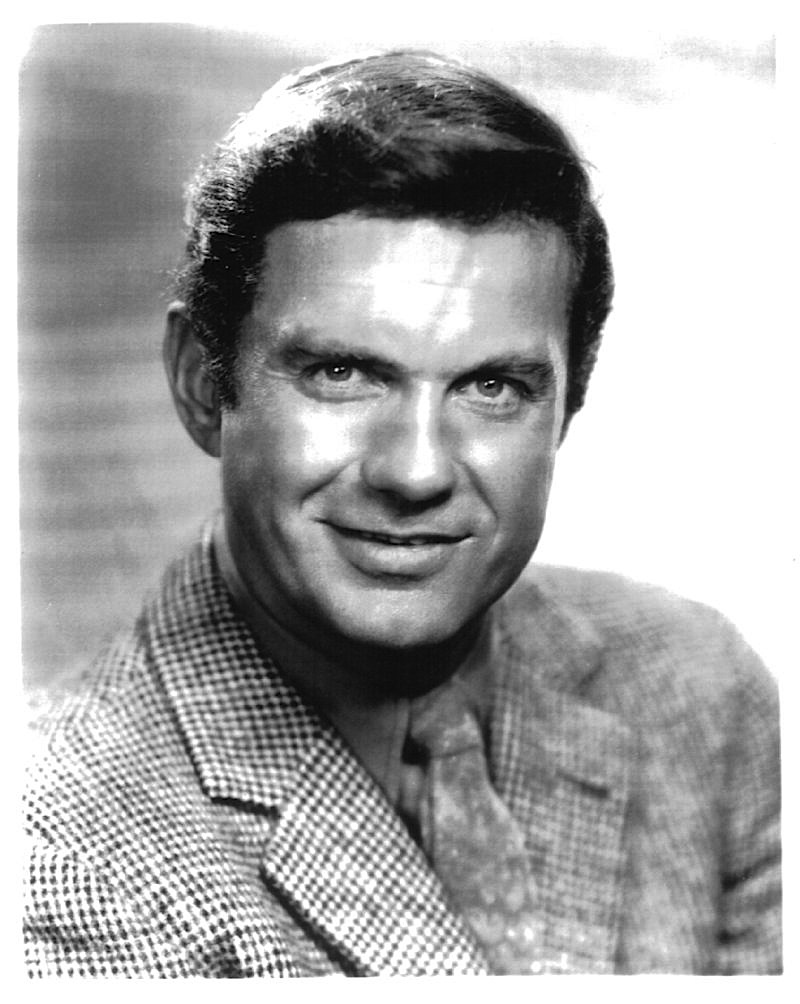“You’re gonna think this is crazy,” Cliff Robertson was saying, “but I think the Libertarian Party has the right idea. There ought to be a place on the ballot where you could vote for None of the Above. Then maybe in November the parties would have to go back and nominate somebody else . . .” He grinned wickedly at the notion. This was the other night at O’Rourke’s, where he’s settled into the corner of a booth after a flight from San Francisco. He was in town to talk about his new movie, “Obsession,” but the conversation turned into a debriefing about the Democratic primaries. Here it was August and he was STILL for Mo Udall.
“He’s a long, tall drink of water and the brightest man who was running,” Robertson said. “But I got into his campaign in a funny way. I sat out 1968 and 1972. Then my wife tells me we’re invited down to San Clemente for dinner. I told her she could go, but little Cliffie was staying right at home. ‘Like it or not,’ she says, ‘he IS our President.’ I liked it not.”
And so Robertson’s wife, actress Dina Merrill, went down to San Clemente, and in the fullness of time an autographed photo arrived in the mail, showing her small-talking with the President.
“It went on the piano,” Robertson recalled. “We already had a photograph there of me with Jack Kennedy, from when I did ‘PT 109.’ But somehow MY picture got shoved back among the potted palms. One more reason why you should never have a goddamn piano in the living room. Then Watergate started to happen, and it was the damndest thing. ‘PT 109’ kept getting closer to the front and Nixon started moving back toward the bass keys. At first I thought it was the maid. When I realized it was my wife–who gave MONEY to the Republicans–I knew it was time to look over the primary field.”
He looked, he settled on Mo Udall, and there they were in New Hampshire in the snows of January with Mo saying he would work this side of the street and Cliff should work the other and they’d meet at McDonald’s.
“Certain super-concerned superstars never quite made it up there to New England,” Robertson observed. “They’re making noble statements and staying at home. I’m asking myself, where the hell are they? I’m not slogging through the snow looking for out-of-season box-office revenues, for Chrissakes . . .”
He sipped at a Scotch and soda and talked about the power of the press and how its obsession with front-runners got Jimmy Carter the nomination, and I told him I thought “Obsession,” speaking of obsessions, was one of the weirdest movies I’d seen in a couple of years.
Robertson plays a New Orleans businessman whose wife (Genevieve Bujold) and daughter are kidnapped. During a high-speed police chase, the car they’re in runs into a gasoline truck and they’re incinerated in the explosion. Eighteen years pass, and he still nurtures his loss. And then, on a business trip to Italy, he walks into the church in Florence where he first met his wife–and there, there on that scaffolding, retouching a painting, is his wife, looking exactly the same as she did 18 years ago.
“With something like this,” he said, “you have to go all the way. Pull out the stops, go for pure melodrama. When the director, Brian de Palma, came to me with the idea, that was exactly his notion. Here you have a man who is possessed by his lost love – he blames himself for the deaths of his wife and child – and when he sees this woman who looks exactly like his wife in every detail, his 18 years of brooding develops into an absolute obsession.”
He falls in love with the girl, of course, and they walk the midnight streets of Florence hand in hand, and then she returns with him to New Orleans and there’s going to be a wedding. But then the last third of the movie provides a series of revelations and deceptions that blend murder, incest, suicide attempts and a briefcase containing $500,000 in cash. “It’s one hell of an ending,” Robertson said. “When we were shooting it, we knew it would be a little hard to believe. And so the whole movie had to lead up to it, step by step, so that when the surprises start, you go with the white water, all the way to the beach . . .”
The wave is pushed along mightily by the musical score, composed by the late Bernard Herrman, who did so many of Hitchcock’s pictures. Herrman’s music this time is full, bold and oppressive, as it’s meant to be, providing innocuous scenes with sinister undertones. The music and the story make you think of Hitchcock, and maybe that’s the idea: “Try to compromise with this story and you’d ruin it,” Robertson said. “It’s classic melodrama, it’s romance and crime and betrayal, you go all the way with it. And, boy, do we need it now . . .”












